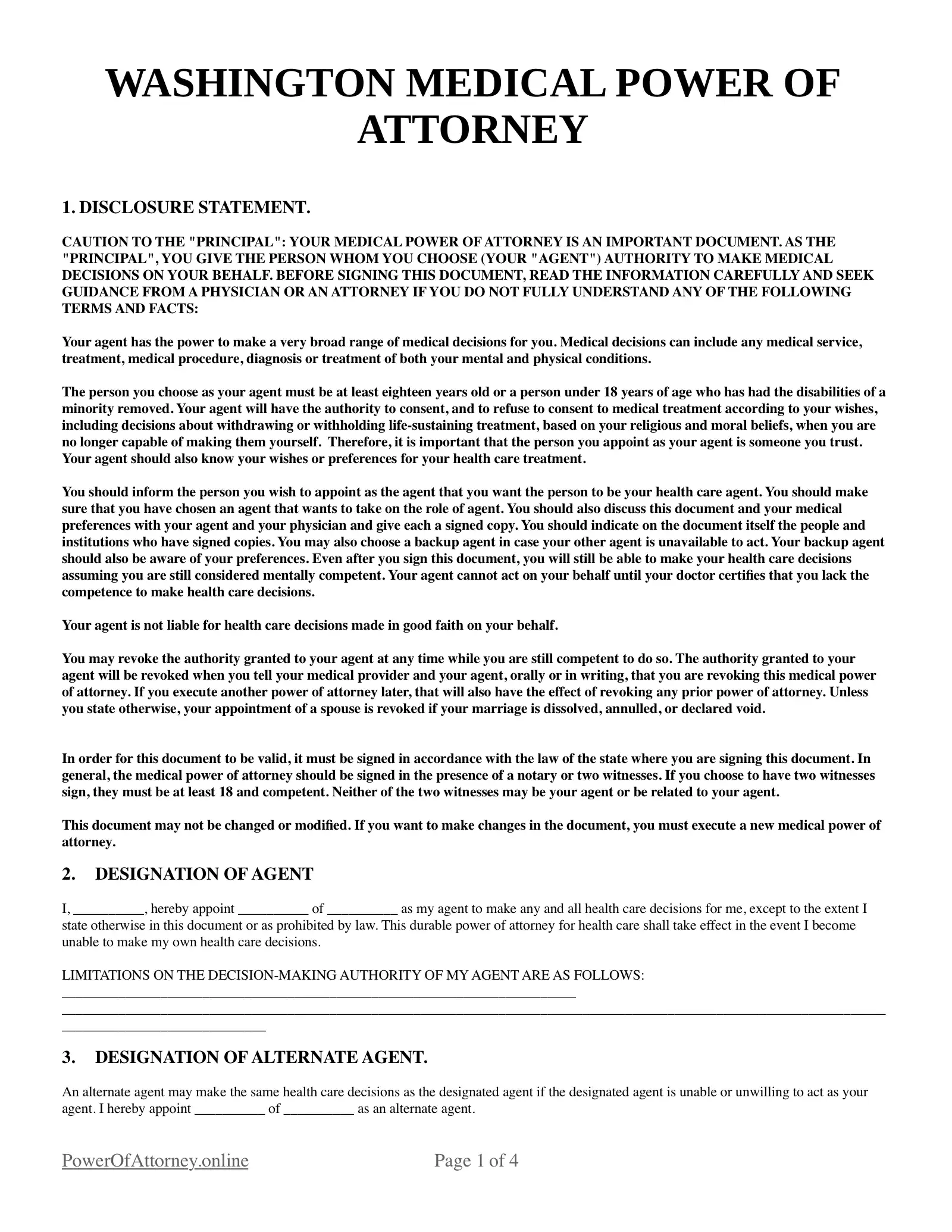Free Washington D.C. Medical Power of Attorney Forms
In Washington, D.C., a Medical Power of Attorney (MPOA) is a legal document that allows you to designate an agent to make healthcare decisions on your behalf if you become unable to do so.
It guarantees that your healthcare wishes are honored in the event of mental incompetence or incapacitation, offering reassurance during unpredictable situations.

Washington D.C. Medical Power of Attorney Laws
In Washington, D.C., the Medical Power of Attorney is regulated by distinct laws and regulations.
- Statute: DC Code § 21-2205, part of the D.C. Code, serves as the legal basis for establishing a valid Medical POA.
This section specifies the execution requirements, mandating that your POA must be signed in the presence of two witnesses to be considered legally effective.
Washington, D.C. has embraced the Uniform Power of Attorney Act, ensuring that your document is recognized in other jurisdictions that have also adopted this act.
Additionally, the statute is designed to guarantee that your healthcare decisions are placed in reliable hands, accurately reflecting your preferences when you are unable to express them yourself.
Signing Requirements in Washington D.C.
For a Medical Power of Attorney (MPOA) to be considered legally binding in Washington, D.C., it must adhere to specific execution requirements.
- Signing requirements: In Washington D.C., the MPOA must be signed by the principal along with the presence of two competent witnesses, as outlined in the D.C. Code (DC Code § 21-2205).
By meeting this criterion, you effectively authorize your chosen agent to make healthcare decisions on your behalf.
While Washington D.C. law does not mandate the notarization of the MPOA form, obtaining a notary's seal can enhance the document's legal robustness.
How To Write a Medical POA in Washington D.C.
In order to establish a legally valid MPOA in Washington, D.C., it's crucial to incorporate all necessary terms and personal information accurately.
Follow this guide to navigate the process:
1. Select your agent
Choose someone you trust implicitly to make healthcare decisions on your behalf if you become unable to do so. Consider selecting a secondary agent if your primary choice is unavailable in the future.
2. Communicate your healthcare wishes
Engage in a thorough discussion with your chosen agent about your medical preferences, values, and any specific directives you wish to include. This conversation ensures your agent is ready and willing to fulfill their role.
3. Utilize a Washington D.C. MPOA Template
Employ a standard Washington D.C. MPOA template form to comply with local legal stipulations. Using a printable template simplifies the process, eliminating the need for costly legal services to draft your document.
4. Detail the agent's powers
Clearly outline the authority you're granting your agent, whether it's broad decision-making power or specific instructions regarding treatments, access to medical records, or end-of-life care. Detailing your wishes ensures they are respected.
5. Sign with witnesses present
Adhere to Washington D.C.'s signing requirements. Your MPOA must be signed in the presence of two competent witnesses, who should not be your agent or have any interest in your estate. Although not required, notarization can lend additional validity to your document.
6. Distribute copies
After signing, provide copies of the MPOA to your agent, healthcare providers, and any other pertinent individuals. Keep a copy for yourself in a secure location.
By following these steps, you'll ensure your healthcare decisions are honored when necessary.